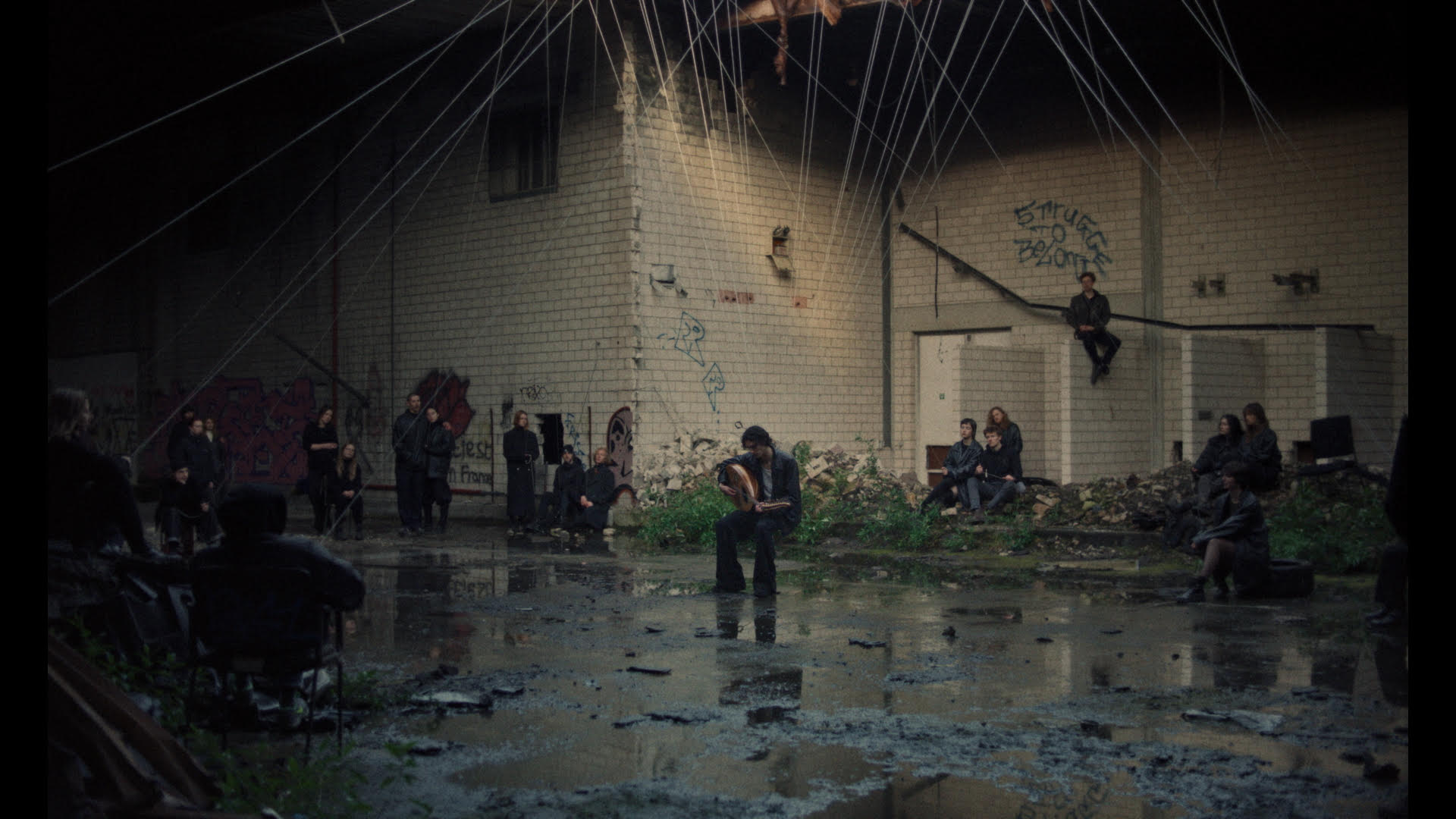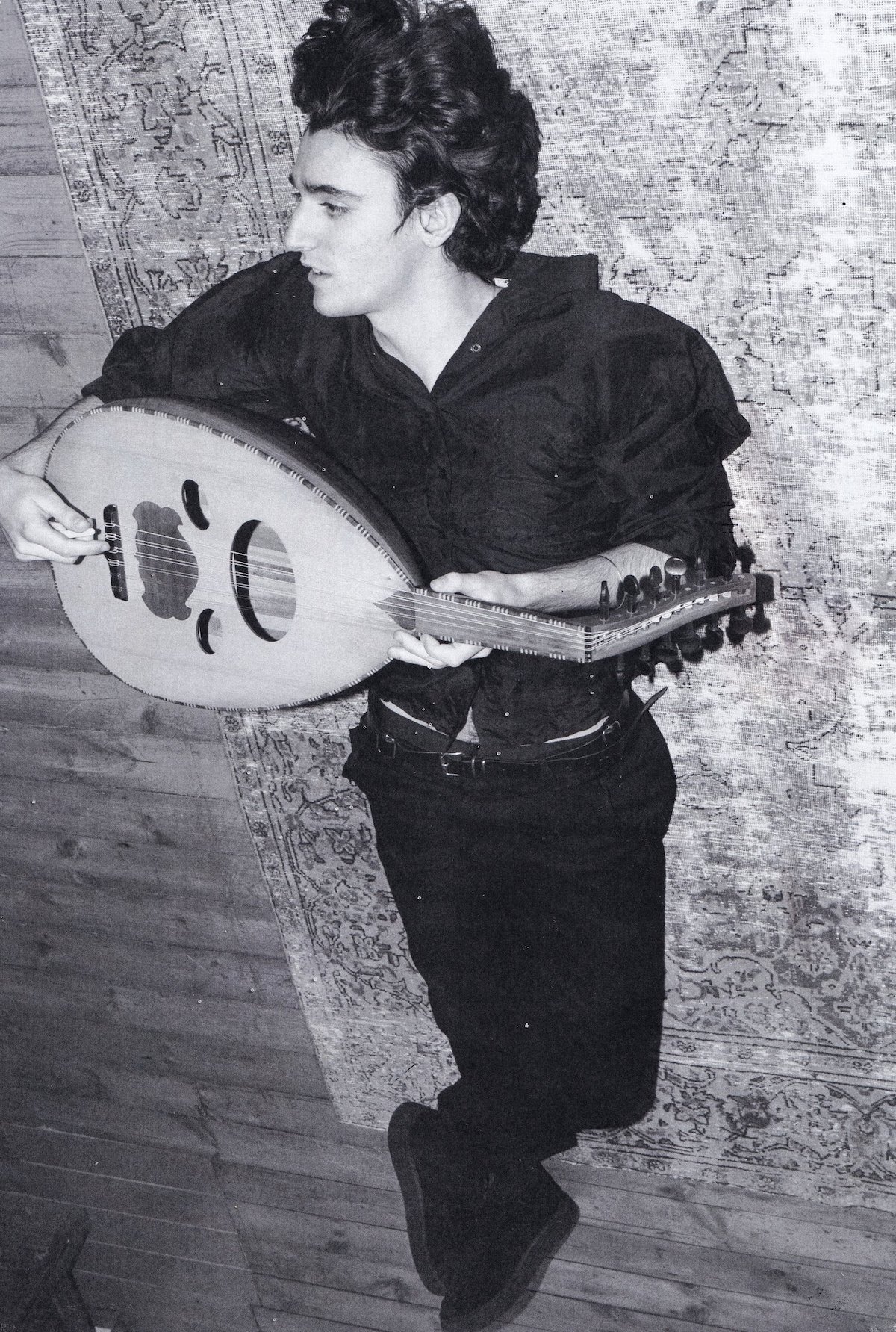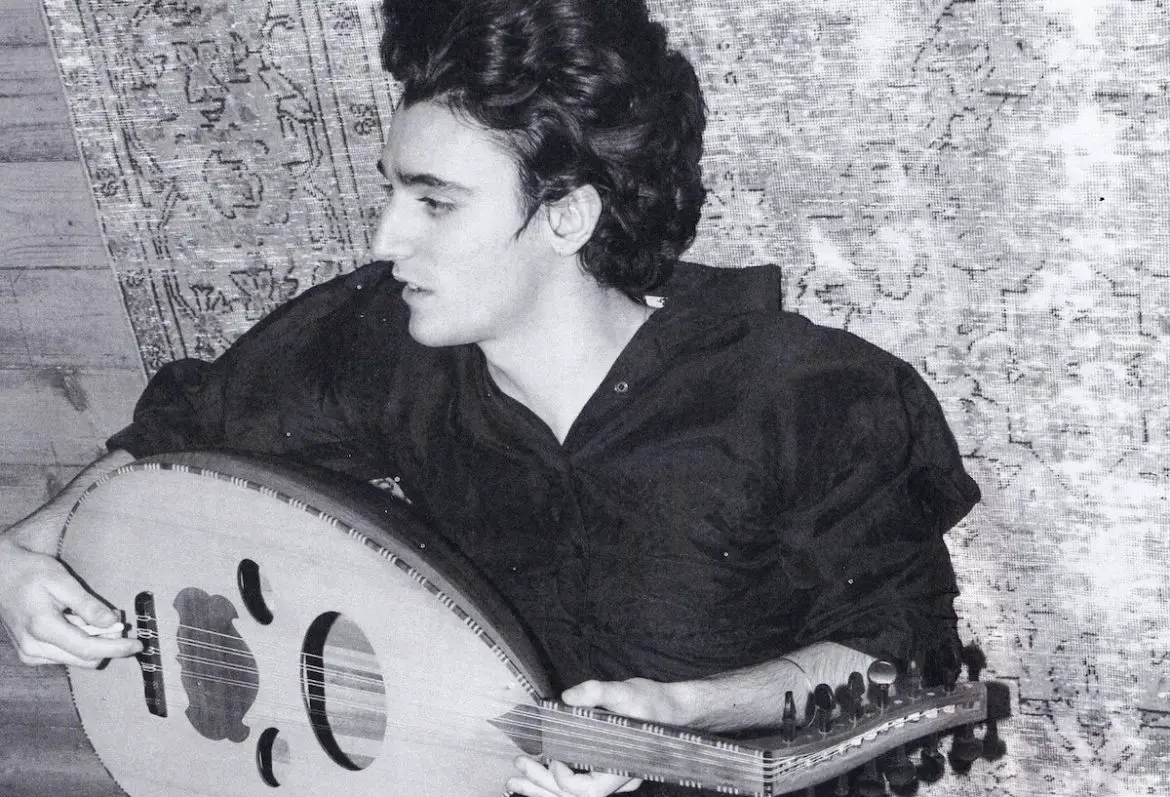In “The First Disciple,” his first new release in over 2.5 years, Belgian-Egyptian indie rocker Tamino shows a continuation of his sonic individualism and a new reach in his poetic lyricism.
 follow our Today’s Song(s) playlist
follow our Today’s Song(s) playlist 
Stream: “The First Disciple” – Tamino
We open in a cavernous warehouse:
The lighting is low, the walls are daubed with graffiti, and Belgian-Egyptian artist Tamino sits amidst a crowd of leather and denim drawing a melody from an oud, a kind of lute originating in the Middle East.
With his first new release in over two and a half years, Tamino’s new single “The First Disciple” revitalizes the sound and aesthetic that his listeners became accustomed to in his debut album, Amir. This single, though, demonstrates a new sense of self awareness and personal growth within the already immensely talented young artist.

My old friend, these poems that you preach
They’re being wasted as you speak
Remind me once more how they came to be your calling
Do you even know you’re falling?
You know that for you I’d give an arm
I’m one of few that never meant you harm
And I heed you like I heed fire and thunder
But from time to time I wander
And lately I did wonder
Tamino’s lyrical style is simple in its verbiage yet carries a great deal of weight. Though his native tongue is Flemish, he chooses to write in English, having said in the past that he likes the sound of it more, that he feels it’s the best language for him to write in, according to an interview with Discover Benelux in 2019. In many of his past songs, the words have this narrative flow, reading more like a piece of prose poetry than a conglomerate of verses and bridges and choruses. There’s a literary aspect of his work in the way that he characterizes his songs, with the “narrator,” so to speak, being in a place of distance rather than singing of experiences that are personal to Tamino directly, often speaking to a second person “you” as the focused perspective in his songs.
Take “Persephone” for example, a song about a love story destined to be shrouded in cold misfortune which draws from the Greek myth of Hades and Persephone. Though there’s a kind of musical chorus, a melody that repeats in intervals, there’s no lyrical repetition other than the use of the phrase, “yes my love I confess to you,” which bookends the song with “I am only here…” and “I’ve nothing but the means to break your heart in two” respectively. It feels like a soliloquy, the inner monologue of the Hades character that Tamino dons, more than a love song; yet there’s no elevated language, you don’t feel like you’re listening to a high school english assignment nor does it feel like an attempt to sound smart and artsy. There’s just this poetic simplicity that brings about a sense of honesty, of raw emotion without being too vulnerable. It’s a very delicate balance, but it’s executed beautifully.
Yes my love, I confess to you
I am only here to break your heart in two
The very flower you chose that day
Its only task was to decay
You see?
When I watched your first bathing
I only warned you with a lowered voice
“Be wary of my river’s undertow
It flows with water from the coldest source”
Did you hear?
And then I made sure
You would always return
You still know of dawn
But you always return
“The First Disciple” is perhaps Tamino’s most lyrically and poetically impressive song to date. He takes on the perspective of a follower, possibly the disciple that the title references, and though this follower loves their idol unconditionally, they aren’t blind. They’ve been with their idol since the beginning, witnessing them in every stage of their fame or infamy and can objectively see how their idol has changed over time. It seems to be a young artist looking up to an older one, wondering why the artist sought the lifestyle that he now exists in, wondering why he became an artist, why he wanted to be famous and successful and praised. It’s not quite a criticism of the famous idol but there are observations that the follower makes which he seems to disapprove of.
There’s this powerful set of lyrics that parallel each other so masterfully which speak to the root of the song’s meaning. Towards the beginning, he sings, “Lately I did wonder/if you did it all to make you feel desired/did it all to make you feel admired, for love to replace your shame.” Later on, the sentiment is repeated, only with the word “did” being replaced by “give,” saying, “yet you give it all to make you feel desired…” and so on. This small change really shapes the lyrical journey of this song, while the follower watches his idol lose himself in his fame, saying the things that you did in the past new take from you, take away from who you used to be.
If you did it all to make you feel desired
Did it all to make you feel admired
For love to replace your shame
That’s quite the group that you have gathered now
Most of them, they just want you somehow
They would pay any price to kiss your skin
Don’t tell me that is loving
You know that don’t mean nothing

In the beginning he asks, “Do you even know you’re falling?” as he can see the idol begin to forsake his talent for the illusion of celebrity. By the end, Taimino sings, “No amount of fame will ever wash away the shame of knowing not how to love your only friend who will love you till the end,” showing the fall from grace that the idol undergoes while seeking fame, yet this follower will continue to love him, regardless of the person the idol has become.
It’s also fascinating how, at the opening of the song, the speaker calls the idol “my friend” while towards the end, he says, “even though, for sure, you won’t remember me,” but then proceeds to single himself out as the idols’ only friend in the last few lines. The meaning here is a bit unclear. It could be a reference to the parasocial relationships that’ve become commonplace under the cult of celebrity worship and fandomship, or it could speak to how fame changes people, how they leave people behind in search of notoriety.
But the lack of situational clarity only adds another layer of intrigue to this song. Given the song’s name and its religious connotations, there’s a clear line to be made between the borderline devout nature of modern celebrity worship and the desire for closeness that many feel towards the celebrities that they idolize. Aspects of celebrity culture, particularly with musicians and artists, are obsessed with the personal details of those celebrities’ lives. You know which Taylor Swift songs are written about which exes, you know which Justin Timberlake songs were written about Britney Spears, you know what love triangle sparked basically all of Olivia Rodrigo’s Sour.
Fans (or disciples) take on this sense of ownership of the lives of others, they feel entitled to the attention of an artist as well as the backstories and sometimes painful details of an artist’s life that influence their work. Tamino’s music, as noted before, is emotionally open but uses metaphor and imaginative language to keep private details of his songs’ meanings as just that- private. So in “The First Disciple” when Tamino says “they would pay any price to kiss your skin/don’t tell me that is loving/you know that don’t mean nothing,” it’s a powerful remark about fans’ desire for closeness with the artists they love. They’d do anything to get close to their idol, but that’s not necessarily a good thing; it can be quite destructive to the artists’ well being.
You know
You must know
And yet you give it all to make you feel desired
Give it all to make you feel admired
For love to replace your shame
You give it all to make you feel desired
Give it all to make you feel admired
For love to replace your shame
For love to replace your shame
For us to praise your name

Sonically, “The First Disciple” is a continuation of the sound that Tamino has curated for himself over the past four years.
Maintaining this balance of Western and Persian scales, Tamino has created this really individual tone, fusing “Arabic sounds with western sensibilities,” as Owen Meyers phrased for GQ in 2020. With the use of the oud and Arabic scale combined with English lyrics and Western sentiments, “The First Disciple” is no stretch from that singular style that Tamino’s become known for.
Supported by Radiohead’s Colin Greenwood and Ruben Vanhoutte, the simple power of Tamino’s lyrics is replicated in the song’s sound. The instrumentation is restrained but robust, supporting the lyrics in a way that neither the words nor the instruments overpower each other. They work in tandem to create a work that feels full.
The accompanying music video is a reflection of that idea that I keep raising in every aspect of Tamino’s work-powerful simplicity: All taking place in an abandoned warehouse in Antwerp, the video transitions between moments of Tamino playing the oud and surrounded by onlookers to moments in a basement rave. At times he’s the idol he speaks of, watched by many, and at times he’s just a part of that same crowd. It also plays off those eastern and western sensibilities which are ingrained in his sound, paying reverence to the Arabic oud while also referencing Belgian rave culture. The video shows the song off, never drawing too much attention away from the music while bolstering the song’s story without being too literal.
Now, my friend, I won’t forget
The darkness blinding me before we met
It’s all I need to remember you
As the light you were
Even though for sure
You won’t remember me
No, you won’t remember me
I’m afraid that no amount of fame
Will ever wash away the shame
Of knowing not how to love your only friend
Who will love you till the end
“The First Disciple” is the first insight of what’s to come in Tamino’s catalog in some time. It suggests a furthering of what he set up in his debut album: Lyrics that tell stories and a sound full of double harmonics, half steps, and augmented seconds that set his sound apart from other indie rock artists. This single is his longest song by far, running over six minutes, but it doesn’t reach a place of, “Okay this song’s been playing for far too long, time to skip it.” The song is a journey, being both lyrically and musically dynamic. It’s neither mundane nor rushed, it takes its time and tells its story in the span that it needs to. This song demonstrates the immense talent that Tamino possesses in every aspect of his songwriting abilities.
We can’t wait to see what’s next for this truly incomparable artist.
— —
:: stream/purchase Tamino here ::
Stream: “The First Disciple” – Tamino
— — — —

Connect to Tamino on
Facebook, Twitter, Instagram
Discover new music on Atwood Magazine
? © 2022
:: Today’s Song(s) ::
 follow our daily playlist on Spotify
follow our daily playlist on Spotify 
:: Stream Tamino ::










